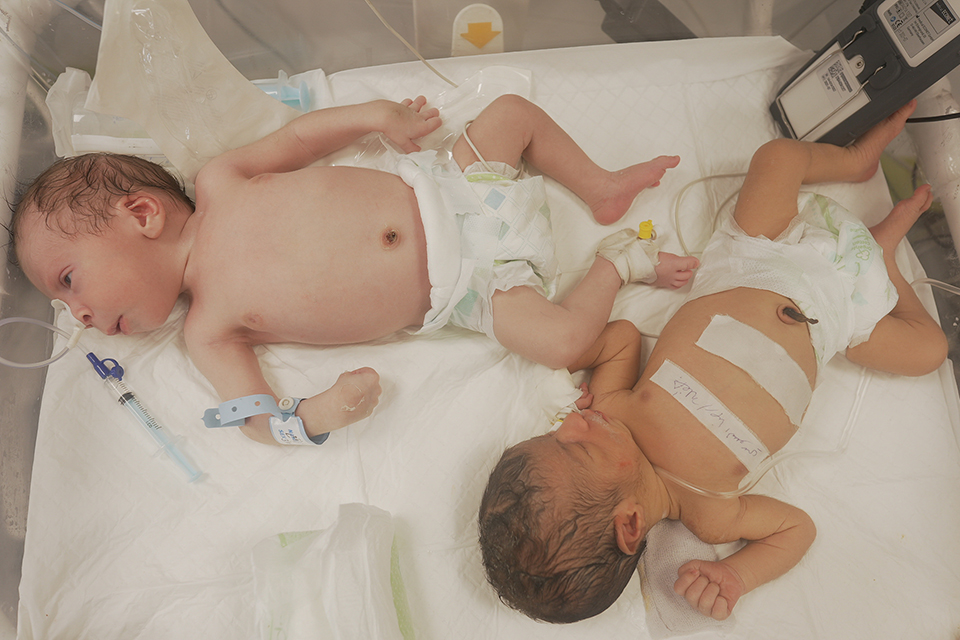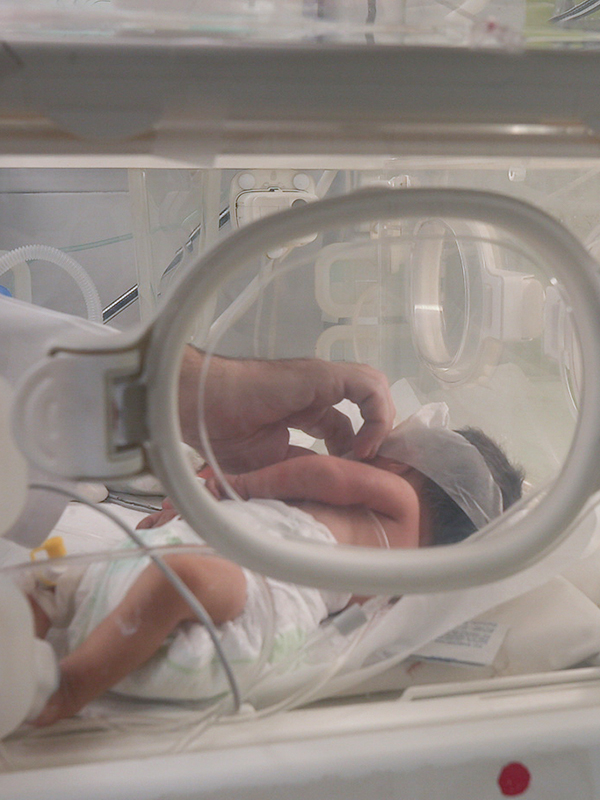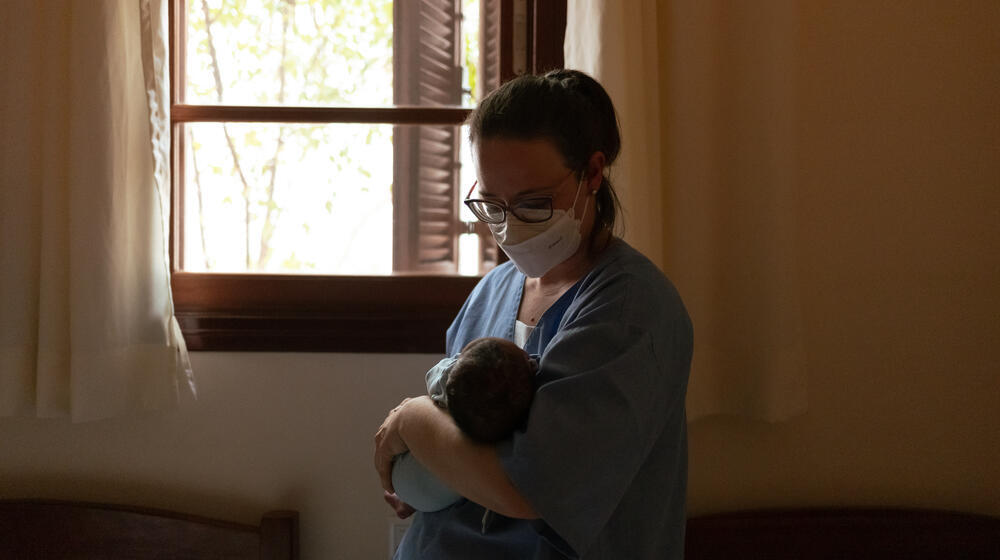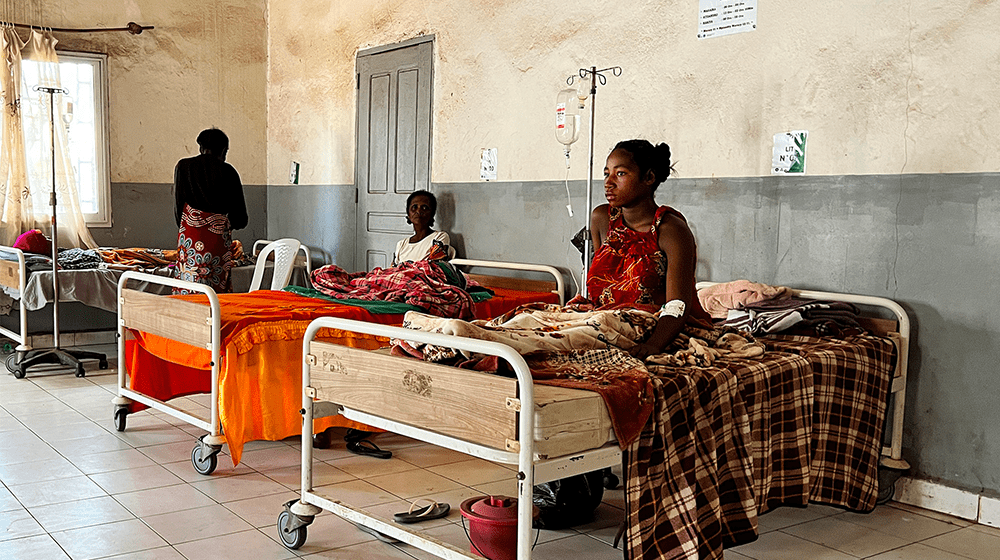
A quest for safety and dignity in Rafah’s tent cities
Crucial initiatives support pregnant women and newborns
Dr. Mohamed Ragab, a gynaecologist and obstetrician, used to work at the Nasser Medical Complex in the city of Khan Younis, Gaza. Now he works under a canvas roof in a displacement camp in Rafah, with his desk, equipment and examination bed sitting directly on the sand.
As many as 70 women a day visit his clinic.
It’s among a number of crucial initiatives to support pregnant women and newborns in Gaza, where an estimated 5,500 women will give birth in the coming month, facing unimaginable challenges as the war grinds on.
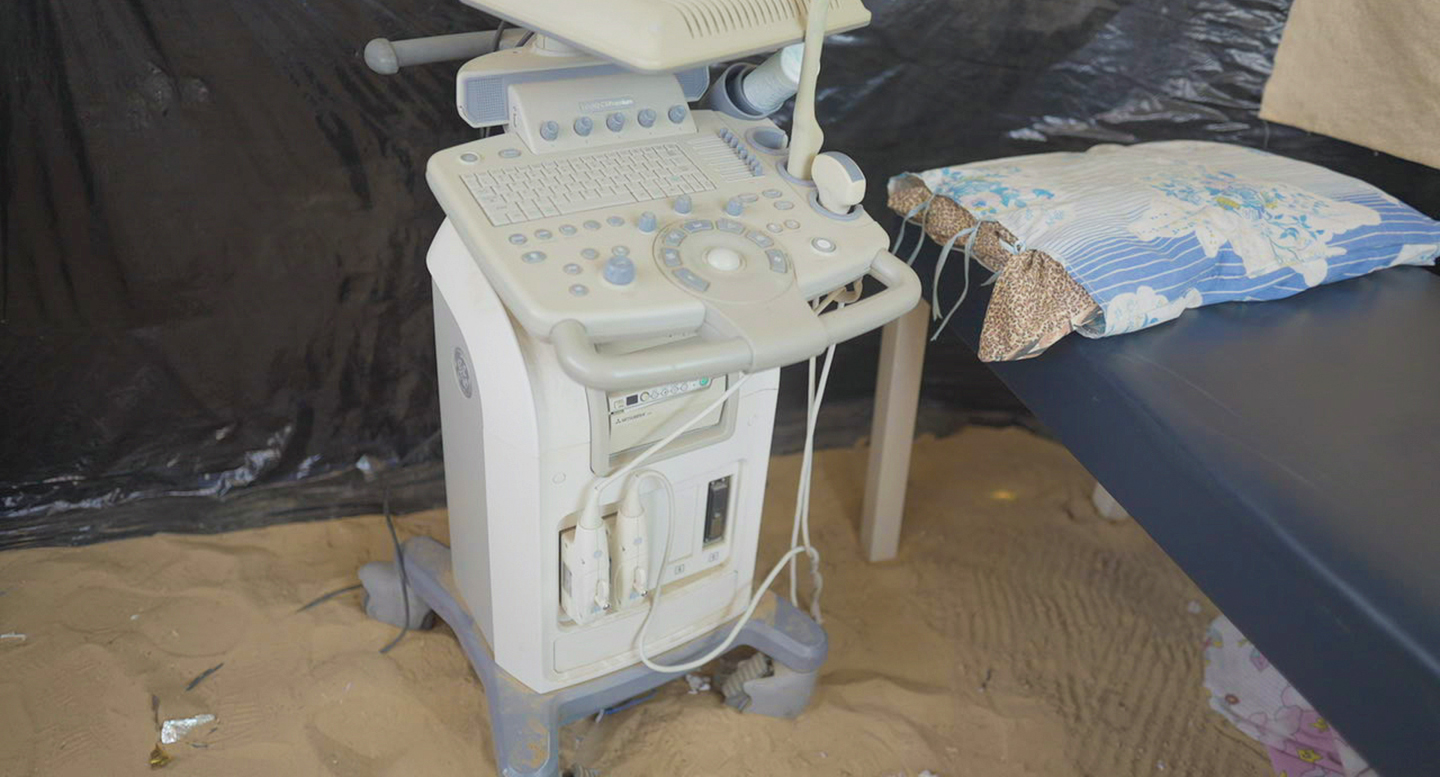
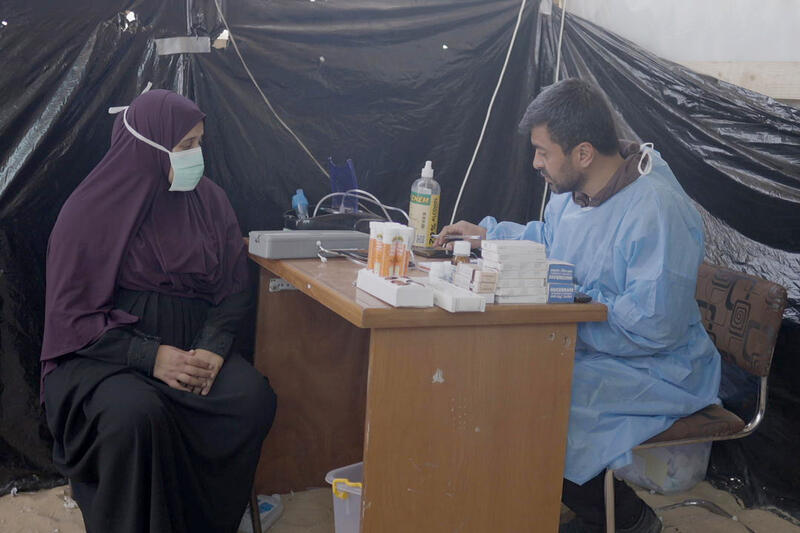
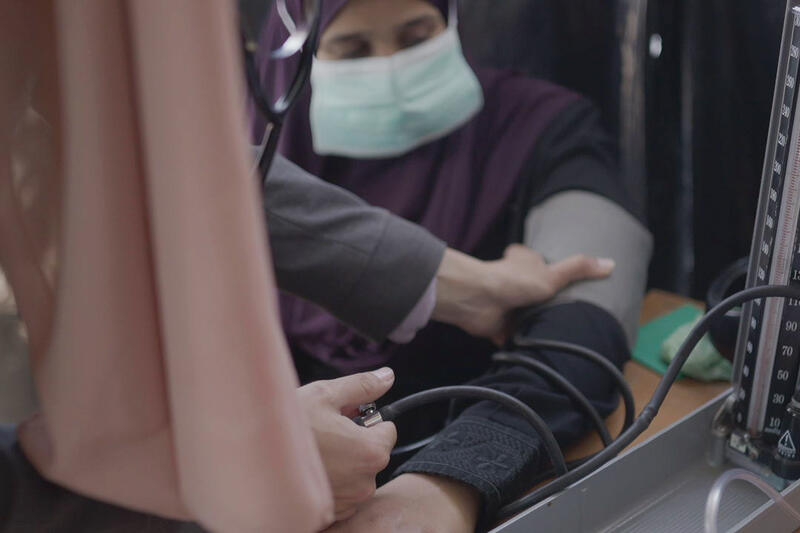
Support for pregnant women
At eight months pregnant, Haneenn Baraka, 30, is among Dr. Ragab’s patients at the clinic. She has been able to access medical care only twice throughout her pregnancy, having been displaced five times since October, along with her two children.
“I have suffered so much that I don't know how to talk about it,” she says. “I am very tired. I mean, a pregnant woman is naturally tired during pregnancy while she is in her own home, let alone when she lives on the sand with life like it currently is. The lack of bathrooms and essential items, it all makes the whole situation unbearable.”
Thankfully for Haneenn, Dr. Ragab assured her that “my baby is in excellent health,” she says.
Women in Gaza face extreme barriers to accessing adequate care for their newborns.
With many hospitals and clinics destroyed or overwhelmed, and with many pregnant women and new mothers afraid to risk traveling to them, women are missing out on essential care for themselves and their babies, too often with devastating consequences.
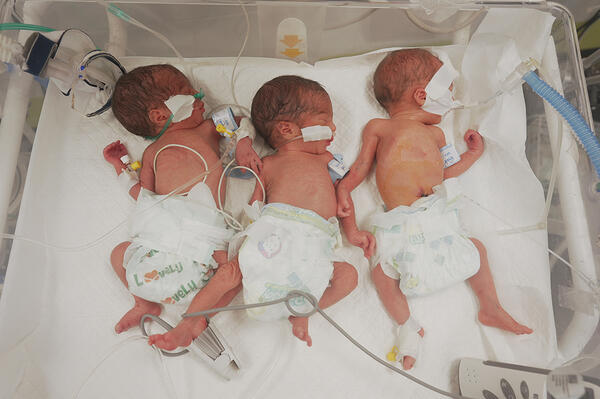
“They just arrive for the delivery hoping for the best,” says a midwife at Rafah's Al-Helal Al-Emirati Maternity Hospital, describing the pregnant women who make it to the maternity ward. “The fetus could be dead and the mother wouldn’t even know.”
Parents whose babies are delivered safely face anxiety about what happens next. Where will they live? Can they keep their newborn clean, warm and fed – or even alive?
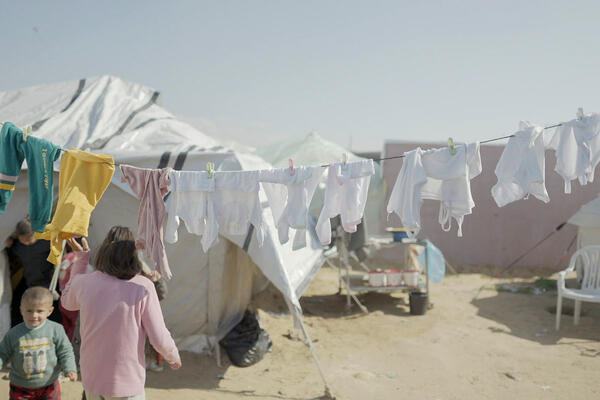
Relief for newborns
In recent weeks, another key initiative started up in Rafah: a diaper factory that helps alleviate some of the pressure on new parents – and helps keep the youngest community members more comfortable with fresh diapers. The factory, launched by a local family that runs a textile and sewing business, is a relief for parents amid limited supplies and skyrocketing costs of diapers
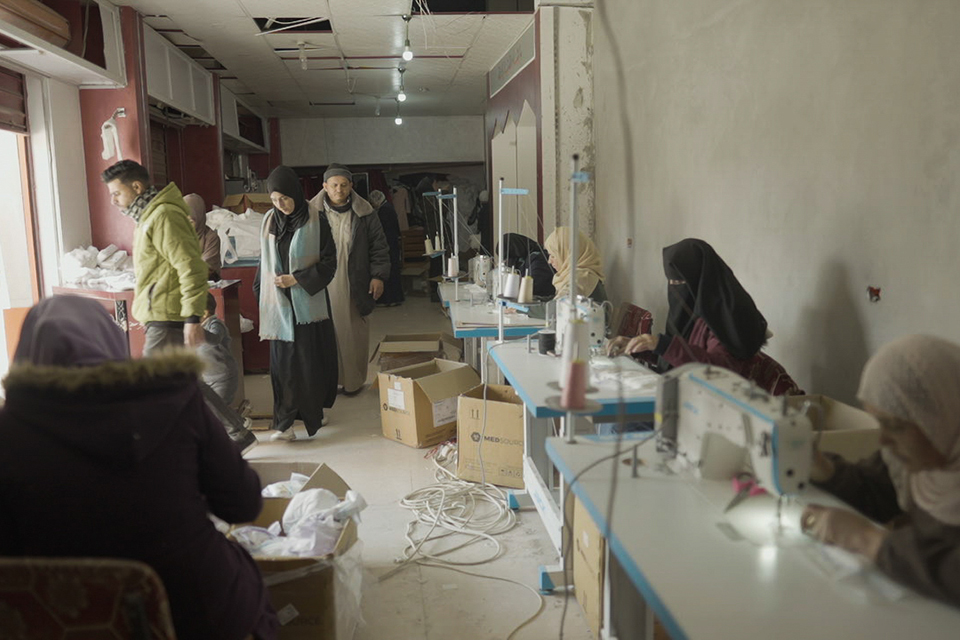
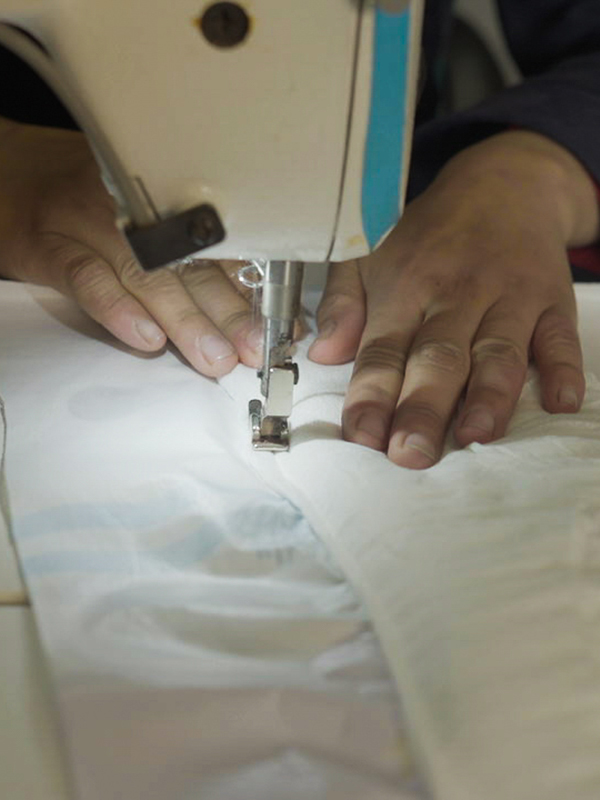

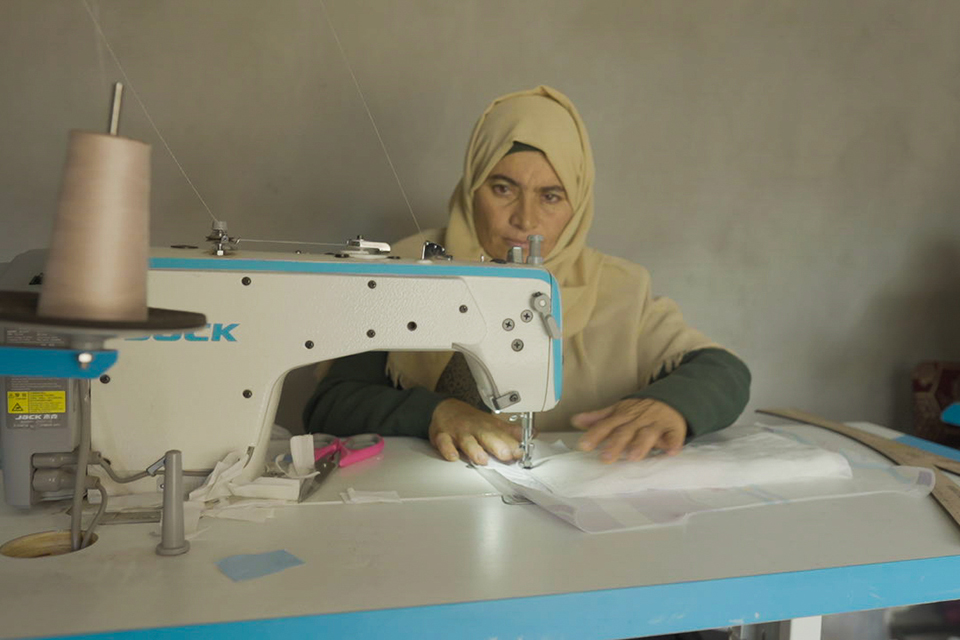

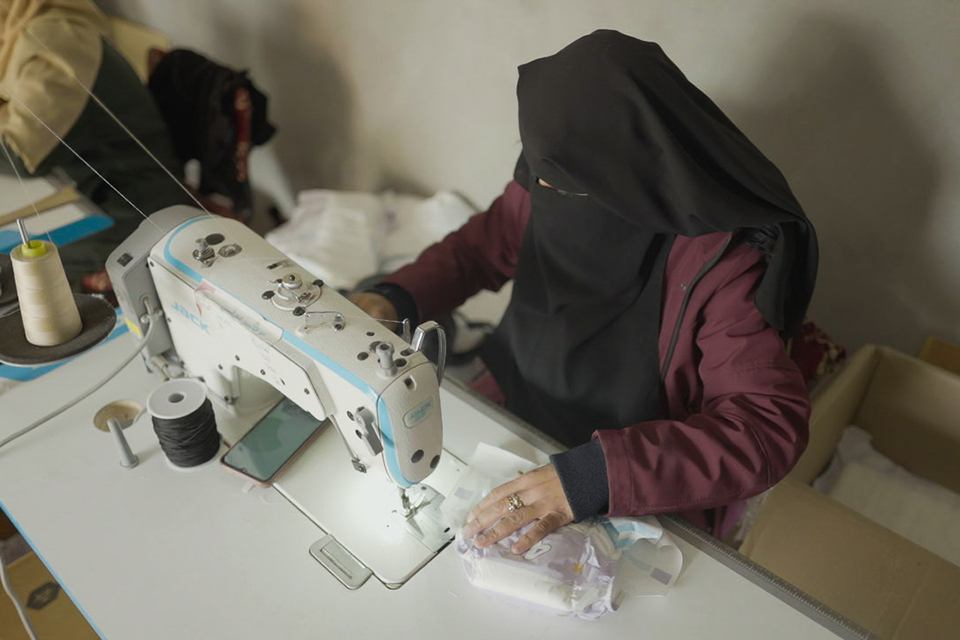
Khalida Jamal Yassin, who works at the factory, says that around 1,000 handmade cotton diapers are produced a day, but more are always needed. “We’re unable to fulfill the high demand. The entire daily production is sold out on the same day, and we start fresh with a new batch for the following day and so on,” she says. “Everyone needs diapers; mothers come and say, 'Please provide me with 30 pieces.’'” The factory has established ID cards for clients to ensure that the diapers are evenly distributed.
The diapers are sold at a low cost so families can afford them. “Most of the people, as you know, they are displaced and can't work to afford buying diapers,” she says. “People’s situation is very difficult.” Khalida herself is displaced, having fled her home amid bombing.
Before the diaper factory, displaced mothers in Rafah had to scramble to find materials to use as diapers, says Khalida. Adding to the challenge: “Many suffer from the lack of water – there's no clean water for bathing and changing.”
The factory, which uses supplies from local markets – cotton, elastic bands, adhesive – is ever in need of more supplies to keep up with the overwhelming demand, she says.
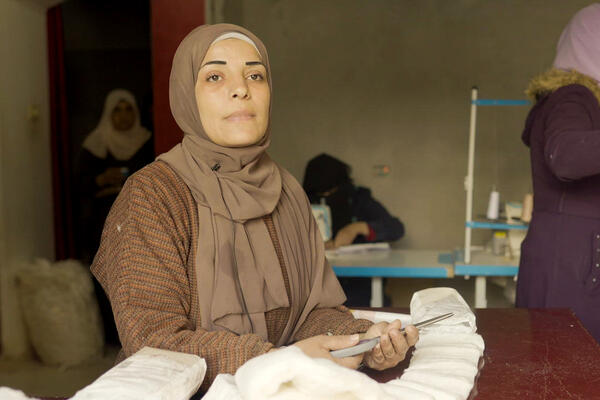
Providing care, and dignity
UNFPA and partners have delivered life-saving equipment and medicines that have supported more than half of the births – 21,000 – in Gaza since the war began on 7 October. Three mobile teams, each staffed with a gynaecologist, midwife and nurse, have been deployed to bring antenatal and postnatal care to pregnant and breastfeeding women in shelters in Deir al Balah and Rafah areas.
Around 15,400 hygiene kits (including soap, sanitary pads, hand sanitizer and baby wipes) and dignity kits (including sanitary pads, a toothbrush, toothpaste, shampoo, underwear and toilet paper) have been distributed in Rafah, Khan Younis and the middle area of Gaza, as well as the West Bank.
The kits are a welcome relief for women amid the chaos. Dominic Allen, UNFPA Representative for the State of Palestine, recalls a powerful moment while visiting camps for internally displaced people in Rafah. “I was listening to women in makeshift tents on the sand, with the sound of bombs in the distance,” he says. “When I asked the women, 'What's your one message to the world?' they unanimously answered, 'Dignity.’”
